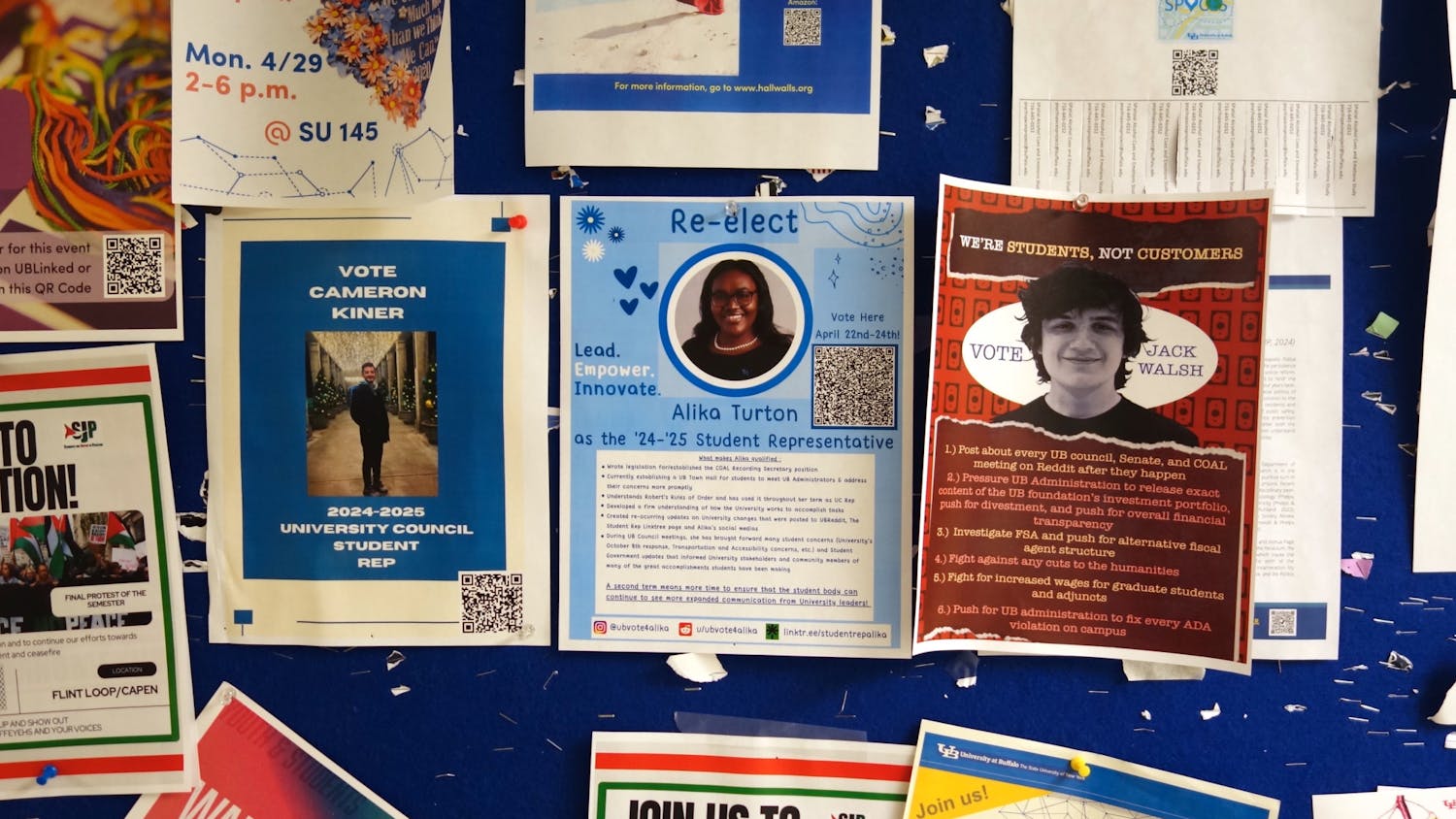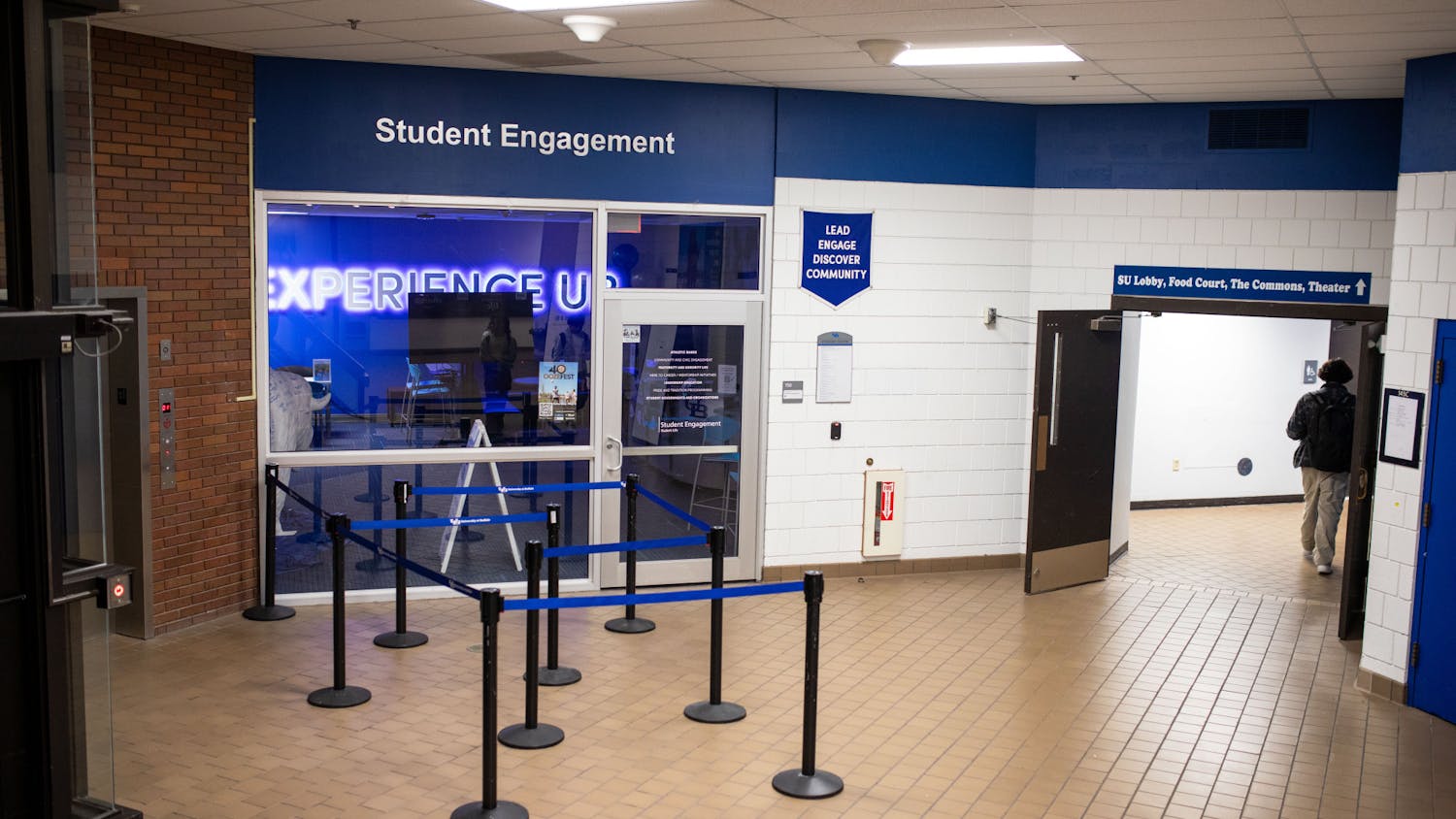A cute football player from the University of Rochester is texting UB student Emma Vradis.
They spotted each other and the attraction was instantaneous.
They've never met.
The two college students connected through the iPhone app Tinder, a free flirting database that has connected more than 10 million couples since September - mostly between the ages of 18 and 30 - in nearby locations, according to The Wall Street Journal. With the swipe of a thumb, users flip through photos of men, women or both and can express interest in whomever they choose.
If the attraction is mutual, the app connects them for a conversation.
If not, the user will never find out another user tried to connect.
A Tinder user can share four of his or her Facebook photos. Users can also see if any potential matches share mutual Facebook friends.
Tinder's founders, Sean Rad and Justin Mateen, bring something new to the concept of online dating and target it to the college-aged demographic. Tinder connects through Facebook, which eliminates most concerns about fake people or facades.
But some are not convinced.
Callan Jackson, a senior psychology major, said Tinder is just another app on the iPhone to get "sucked into."
"I had Tinder for a few days and started meeting some new people," Jackson said. "It was fun but I didn't want to become glued to my iPhone looking at potentially fake C Catfish people, so I deleted it," Jackson said.
Others at UB feel Tinder is a worry-free, fun way to flirt and meet potential matches at and near the university.
Eighty-six percent of online daters report deception as their No. 1 concern, according to Tobias Reynolds-Tylus, a second-year graduate student in communication.
Reynolds-Tylus said online dating is fairly uncommon in his generation compared to those in middle adulthood. Fifteen percent of all Internet users in the United States have used online dating, and 36 percent of single Internet users have used online dating. For college students, recent numbers show 29 percent have used it, but only 4 percent are currently active, Reynolds-Tylus said.
Tinder is gaining popularity quickly at UB and other colleges around the world. Vradis joined two or three weeks ago and has connected with over 40 guys. Kyle, a junior advertising and marketing major who wished to keep his last name anonymous, joined almost a month ago and said there weren't many people using it. Now, he has over 30 connections.
Vradis thinks the app is "funny" and doesn't take it too seriously. She said all of her friends use it, but if more of them took it seriously, she would consider doing the same.
Vinny, the University of Rochester football player, is just a guy to pass the time with, but she can see the potential Tinder has to develop real relationships.
She said the thrill of texting guys is knowing she'll check her phone and there will be someone waiting for a response.
"It's like passing time, I would say," Vradis said. "And I feel like it feels good to have someone to text all day, you know?"
Some UB students are hesitant to spark conversation with other Tinder users.
Kyle has never started a conversation on Tinder and doesn't plan on it.
He sees the new, popular app as one of the recent innovations that negatively affects people's face-to-face social skills.
"I have game," he said. "I can meet girls and actually talk to them in person. I don't need to use [Tinder] or Facebook message them. The technology era has made people so much more apt to do that. People are so reserved and talk behind a curtain like that."
Helen Wang, a communication professor, said Tinder's emphasis on looks may affect college students' concern with how they are perceived online.
"By starting off the communication process between two strangers with a photo-liking activity, it emphasizes the visual appearance and may make the users become more self-conscious about their self-presentation in such spaces," she said in an email.
Kyle, who knows about 50 people who use Tinder, isn't just worried about his generation maintaining romantic "game." He said Tinder, Facebook, Twitter and other technological forms of communication are hurting people's day-to-day interactions.
"Just in general, like in job interviews, if you can't talk to people you don't know that well and be normal about it, then that's an issue," he said.
While some UB students hope their fun, short-lived flirts may one day turn into something serious, Reynolds Tylus said research says it most likely will not work out that way.
Reynolds-Tylus said there is a variety of research that looks at the actual outcomes of online dating, and the picture "isn't pretty" for those looking for long-term relationships and marriages.
"When sites report marriage rates, they are often over-reported [and] misguided," he said. "Sites focusing on hookups may be quite successful, but those looking for meaningful relationships online encounter many difficulties."
For now, students are flipping through possible love interests on campus. Whether it's good or bad, flirting is now held at the palm of the hand.
Email: news@ubspectrum.com




